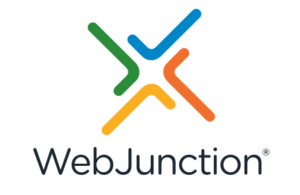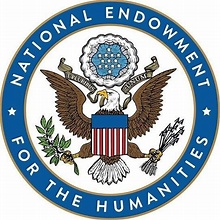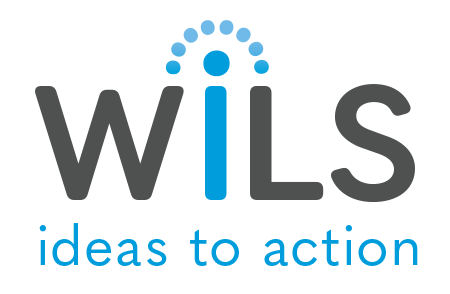Digital Stewardship Projects
OCLC Learning Cohort
 The OCLC WebJunction Digital Collections Stewardship learning cohort, a partner project with WiLS’ Curating Indigenous Digital Collections, had with participants from the Ho-Chunk Nation, Stockbridge-Munsee Community, Red Cliff Tribe of Lake Superior Chippewa, Lac du Flambeau Band of Lake Superior Indians, and Sokaogon Chippewa Community – Mole Lake Band of Lake Superior Chippewa. A facilitated peer learning group of tribal cultural workers met monthly through August 2024 to learn and discuss digital collections stewardship topics together.
The OCLC WebJunction Digital Collections Stewardship learning cohort, a partner project with WiLS’ Curating Indigenous Digital Collections, had with participants from the Ho-Chunk Nation, Stockbridge-Munsee Community, Red Cliff Tribe of Lake Superior Chippewa, Lac du Flambeau Band of Lake Superior Indians, and Sokaogon Chippewa Community – Mole Lake Band of Lake Superior Chippewa. A facilitated peer learning group of tribal cultural workers met monthly through August 2024 to learn and discuss digital collections stewardship topics together.
Curating Indigenous Digital Collections
 In 2021, WiLS was awarded a three-year grant by the National Endowment for the Humanities (NEH). The program, Curating Indigenous Digital Collections (CIDC), aimed to advance the creation and preservation of digital collections in Wisconsin’s tribal archives, libraries, and museums. The program funded a series of post-graduate fellowships to support knowledge preservation and language revitalization in Wisconsin Native Nations. It also funded the beginning planning stages of supporting a community of practice for Indigenous cultural heritage practitioners around that state, which has grown into the Culture Keepers Collective.
In 2021, WiLS was awarded a three-year grant by the National Endowment for the Humanities (NEH). The program, Curating Indigenous Digital Collections (CIDC), aimed to advance the creation and preservation of digital collections in Wisconsin’s tribal archives, libraries, and museums. The program funded a series of post-graduate fellowships to support knowledge preservation and language revitalization in Wisconsin Native Nations. It also funded the beginning planning stages of supporting a community of practice for Indigenous cultural heritage practitioners around that state, which has grown into the Culture Keepers Collective.
CIDC, Year 3
The Curating Indigenous Digital Collections fellowship for Year 3 looked a little bit different from previous years. Rather than focusing on just one tribal partner, the Year 3 fellow spent time laying the foundation for the future of the Collective to benefit all of Wisconsin’s Native Nations. Cole Clark began her role as the Year 3 fellow with WiLS on September 5, 2023. Cole graduated from Alma (Michigan) College with a Bachelor of the Arts degree and comes to WiLS from the Ziibiwing Center of Anishinaabe Culture & Lifeways and has extensive experience in Mukurtu. Cole spent her fellowship year visiting tribal partners, listening to their needs for cultural heritage support, and working to help WiLS find ways to meet those needs.
Read Cole’s reflection on her work as a CIDC Fellow.
CIDC, Year 2
Our community partner in CIDC Year 2 was the Cultural Affairs Department of the Stockbridge-Munsee Band of Mohican Indians. WiLS team members Erin F.H. Hughes and Emily Pfotenhauer worked closely with Monique Tyndall, Director of Cultural Affairs for the Stockbridge-Munsee Community, to jump-start the SMC’s use of Mukurtu. In June 2022, we welcomed Kelsie Flack as our second-year Fellow. Kelsie completed the Master of Library and Information Science program at Louisiana State University in 2022 and holds an undergraduate degree in art history from the University of Utah. Kelsie worked closely with Monique and others at SMC to establish collection development and access policies for Mukurtu and began using Mukurtu to accept digital returns from federal, state, and local collecting repositories. In November 2022, SMC and WiLS hosted a POWRR Professional Development Institute, facilitated by Myriad Consulting, to offer hands-on training in digital preservation for tribal cultural workers. Read more about WiLS’ SMC partnership on the WiLS blog.
Read Kelsie’s reflection on her work as a CIDC Fellow.
CIDC, Year 1
After a national search, WiLS hired Sarah Lundquist in May 2021 as the first one-year NEH-funded CIDC Fellow. Lundquist is a PhD candidate in Language Sciences at the University of Wisconsin-Madison, where the focus of her studies has been the Hoocąk (Ho-Chunk) language. Prior to joining WiLS, she worked as a teaching assistant in the American Indian Studies and Language Sciences departments and as a project assistant for multiple Algonquian language initiatives. She is also a member of Enwejig, the Indigenous languages advocacy group at UW-Madison. Her work was a collaboration with the Hoocąk Waaziija Haci Language Division and the Ho-Chunk Nation Museum and Cultural center, two divisions of the Ho-Chunk Nation Department of Heritage Preservation. The Ho-Chunk Nation is using Mukurtu to improve access to audio and video recordings of Ho-Chunk language lessons and gather knowledge from community members to describe historic photographs of tribal elders.
Read Sarah’s reflection on her work as a CIDC Fellow.
